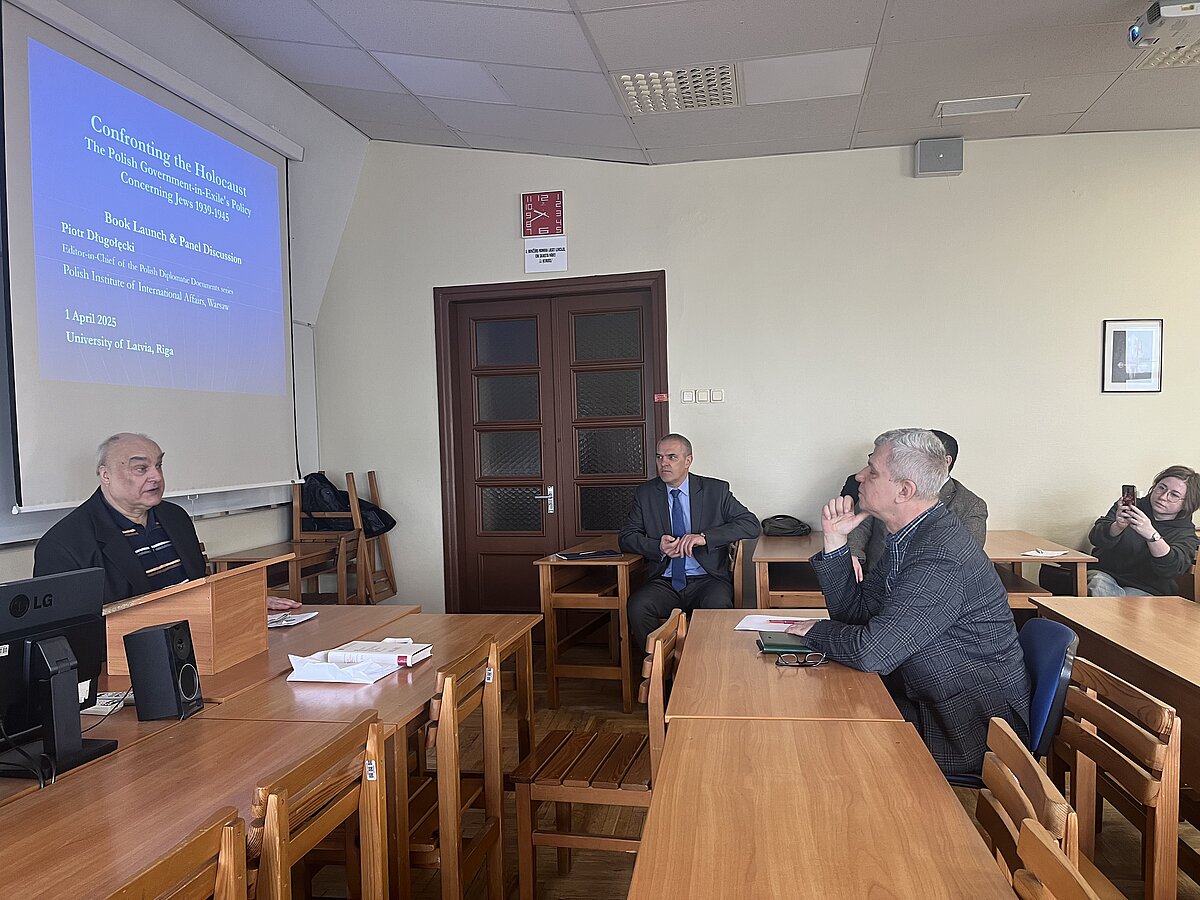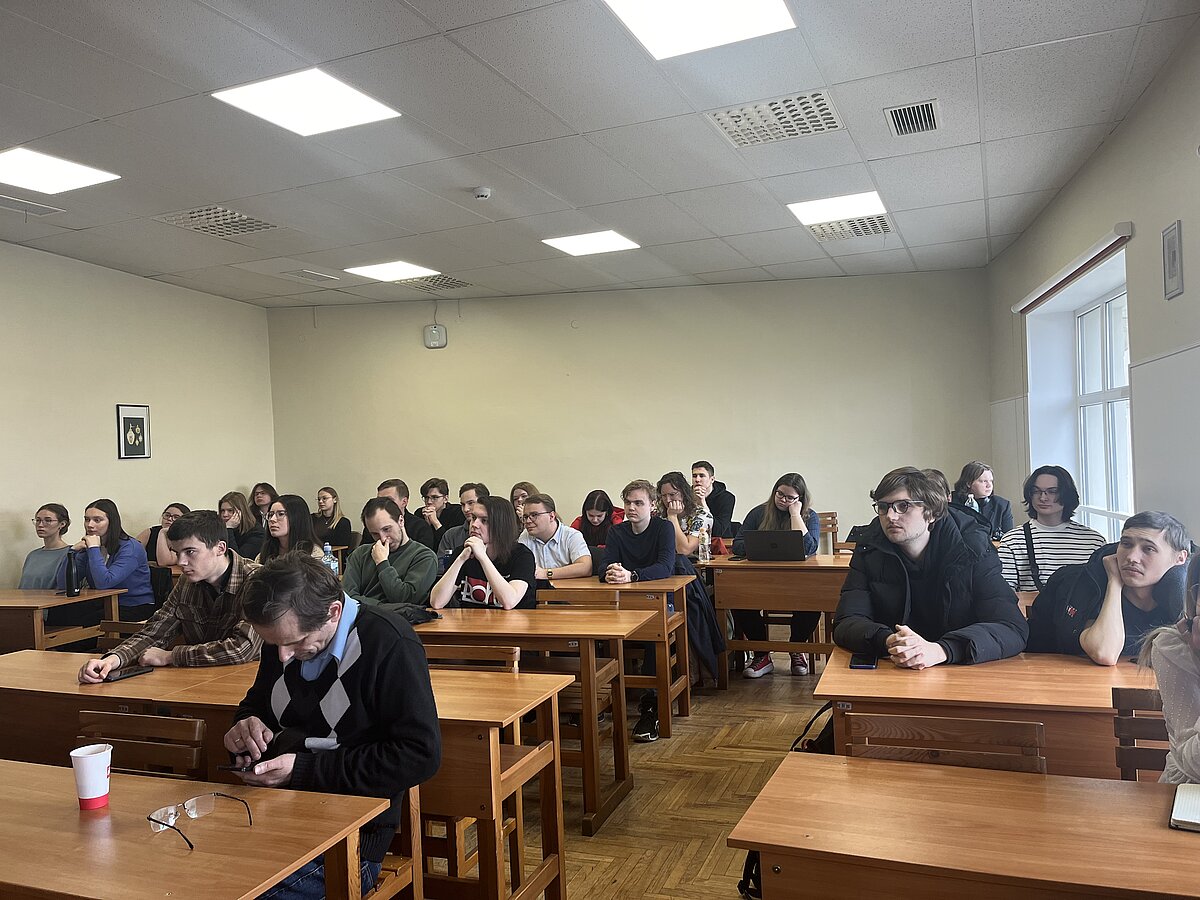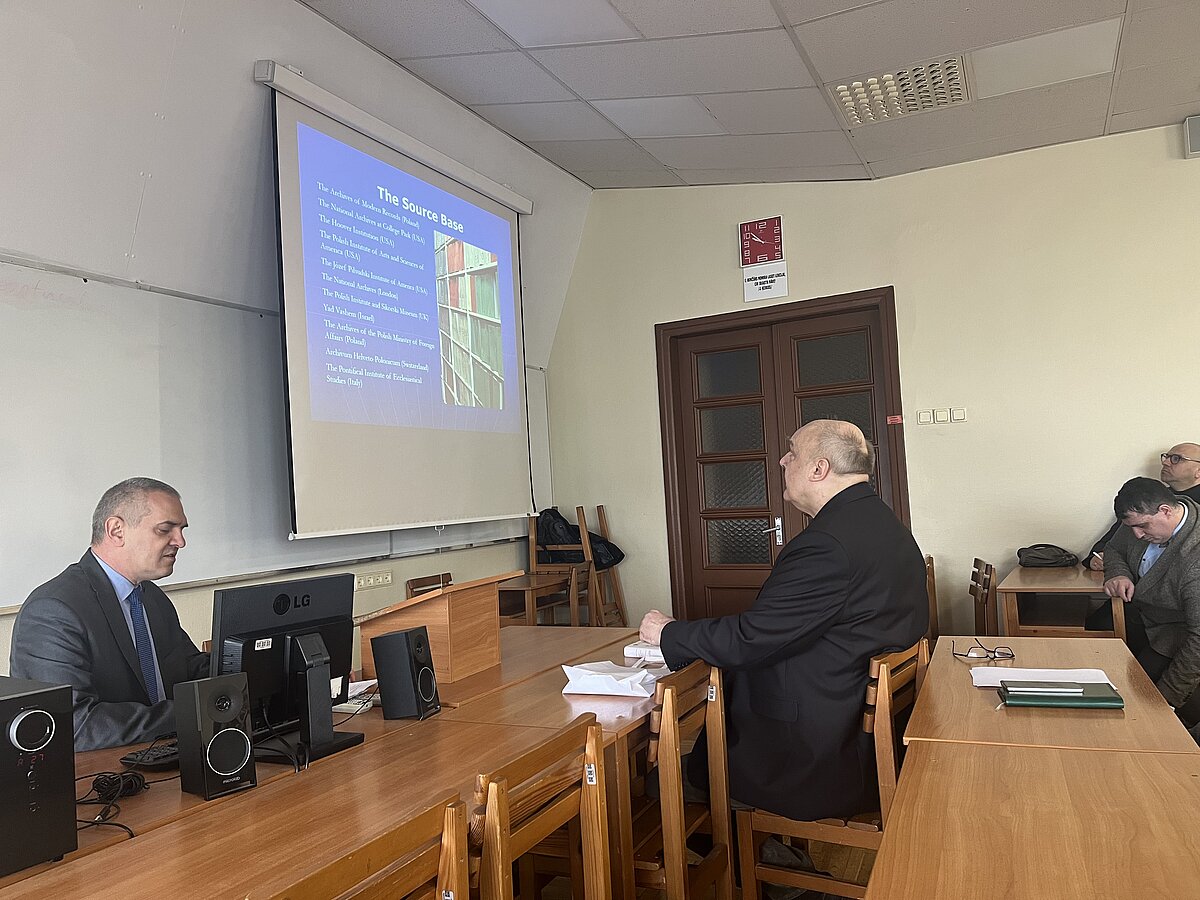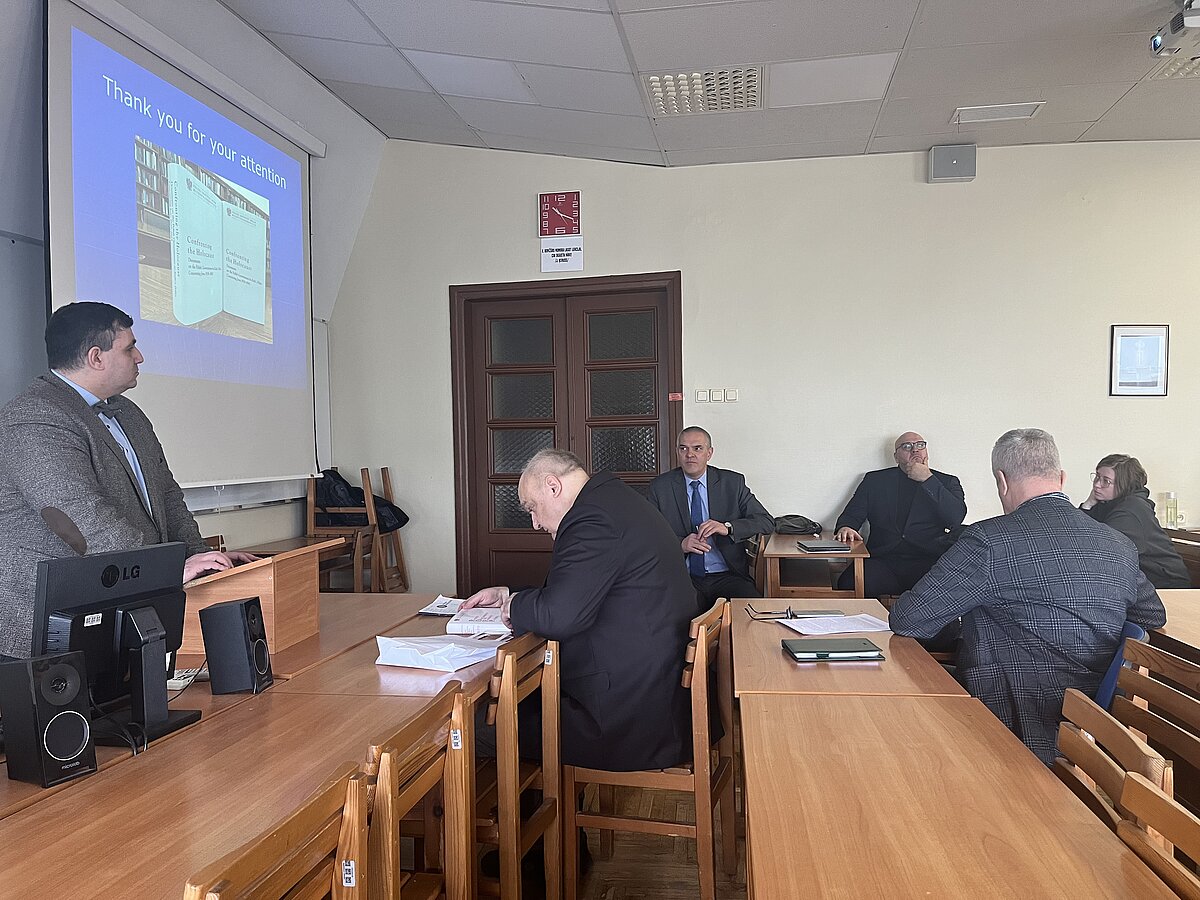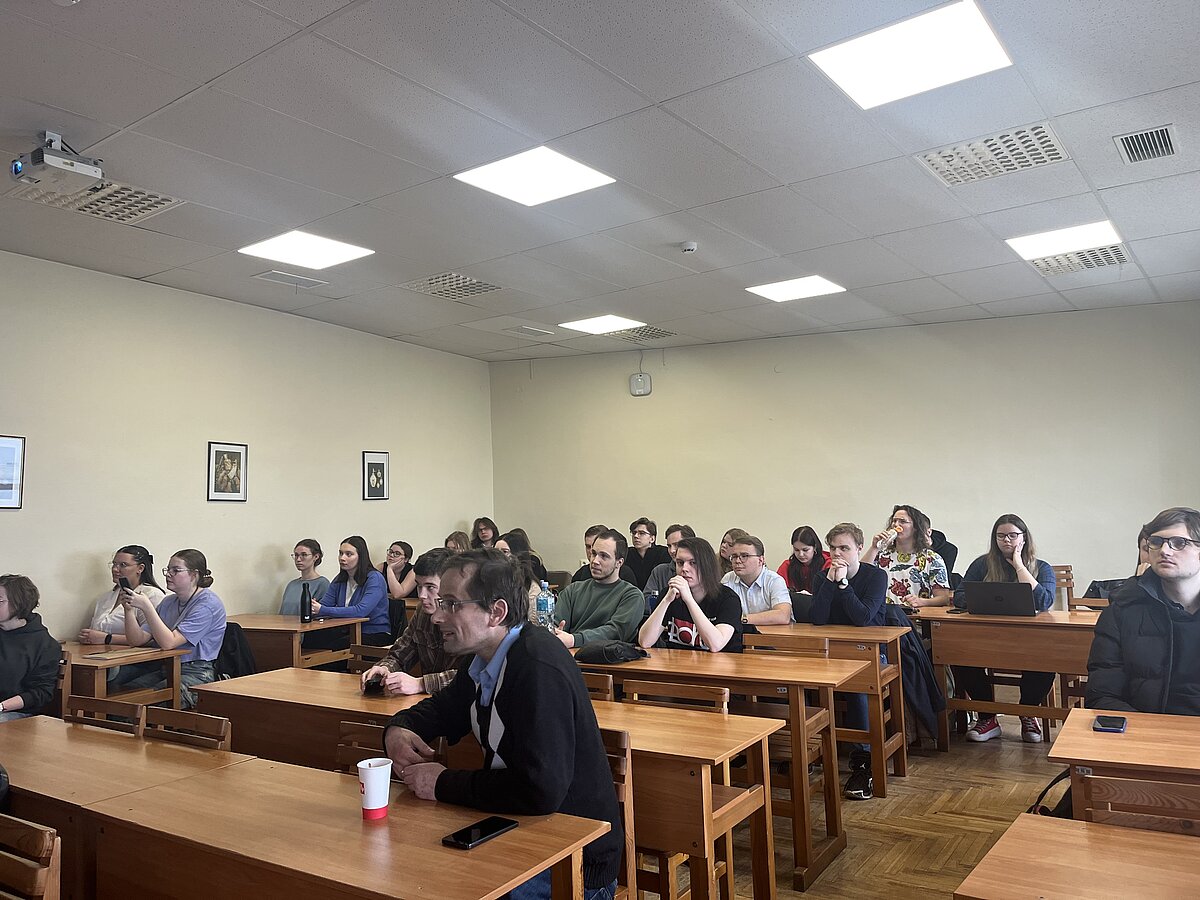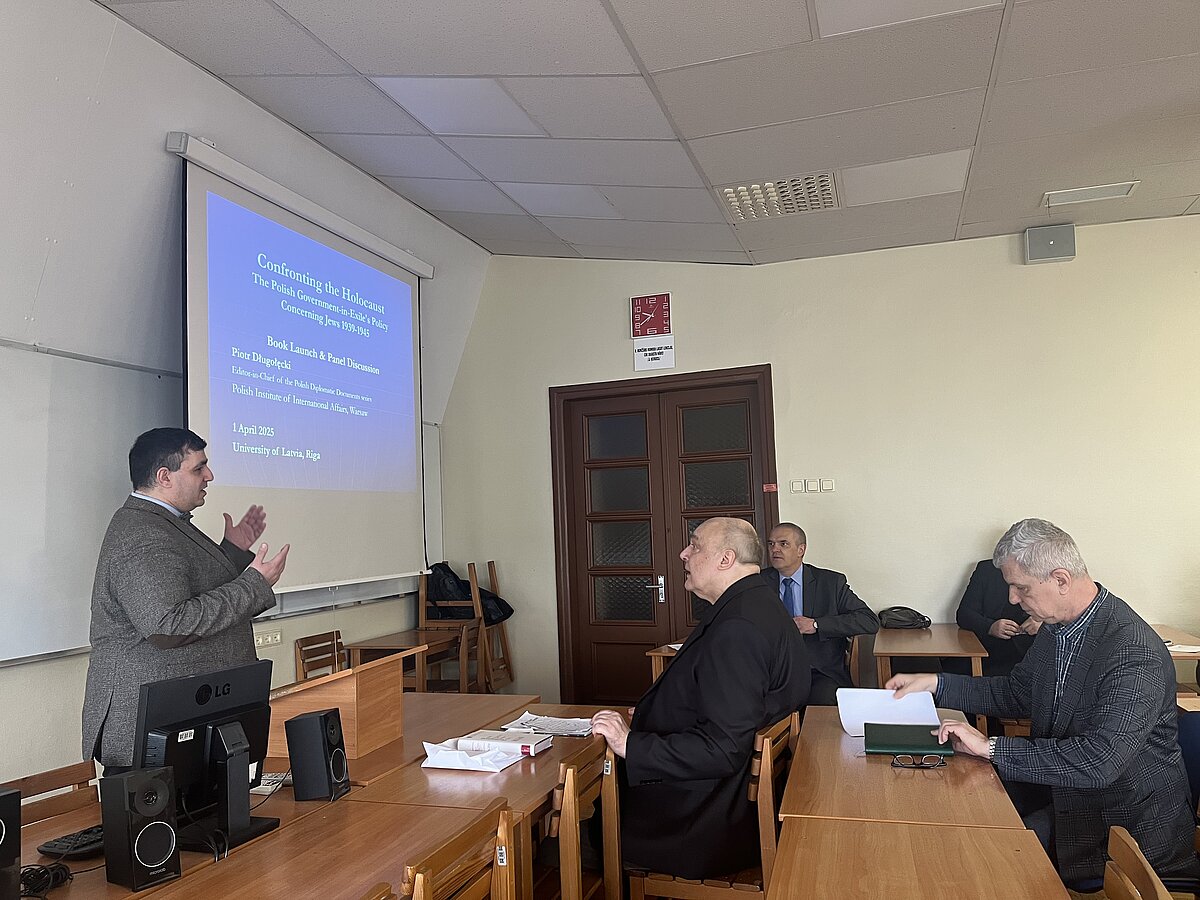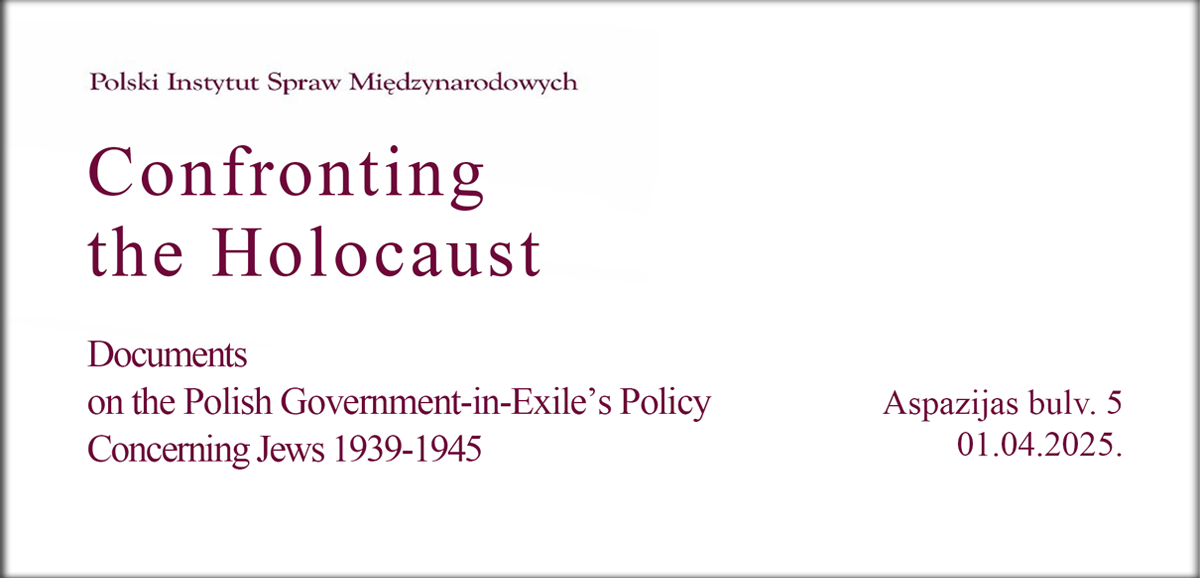
The opening remarks will be given by professor Aivars Stranga of the University of Latvia (Faculty of Humanities), the publication will be presented by its scientific editor Piotr Długołęcki (editor-in-chief of the Polish Diplomatic Documents series; Polish Institute of International Affairs), the discussion will be attended by professor Ēriks Jēkabsons of the University of Latvia (Faculty of Humanities), professor Didzis Bērziņš of the University of Latvia (Department of Communication and Information), researcher Kristīne Beķere of the Institute of Latvian History, and moderated by Iļja Lenskis, director of the Museum "Jews in Latvia".
The debate will concern the activities undertaken by the Polish diplomatic and consular service during WWII and will be conducted on the basis of the volume “Confronting the Holocaust. Documents on the Polish Government-in-Exile’s Policy Concerning Jews 1939–1945" which is a full English translation of the original source publication published in Polish in 2021 – “W obliczu Zagłady”.
The publication contains 554 archival documents (as well as many others cited in footnotes) concerning the conditions and mechanisms of the actions implemented by the Polish Government in Exile towards the Jewish population during World War II. It illustrates the systemic and mass nature of the actions of the Polish diplomatic and consular service on the assistance and rescue of Jews during all stages of the war by bringing together the activities of the President, the Prime Minister and individual ministries and offices, but above all show the permanent work of the Polish diplomatic and consular posts and the relief agencies of the Ministry of Labour and Social Welfare and the Polish Red Cross.
The archival materials included in the volume show the whole spectrum of efforts undertaken, documenting information activities (about the situation of Jews in occupied Poland), propaganda activities (aimed at mobilising the international community to prevent the Holocaust) and legal activities (undertaken with the goal to file criminal charges against the perpetrators). Above all, they illustrate direct aid activity consisting in finding safe havens or enabling people in danger to flee. They highlight that the extensive aid effort was not incidental, but was one of the most important aspects of the refugee policy of the Polish Government in Exile.
Among the questions about these activities we will discuss are:
- whole spectrum of efforts undertaken and motives behind them;
- forgery or obtaining the necessary documentation;
- the importance of Jewish case within broader agenda of the WW2 Polish politics;
- the issue of Anti-Semitism;
- Jewish refugees around the world.
Location: the University of Latvia, 5 Aspazijas Boulevard, Room 510 (5th floor).
Working language of the discussion: English.
To apply: e-mail jsc@latnet.lv (until 30 March 2025).

 CONFERENCE
CONFERENCE